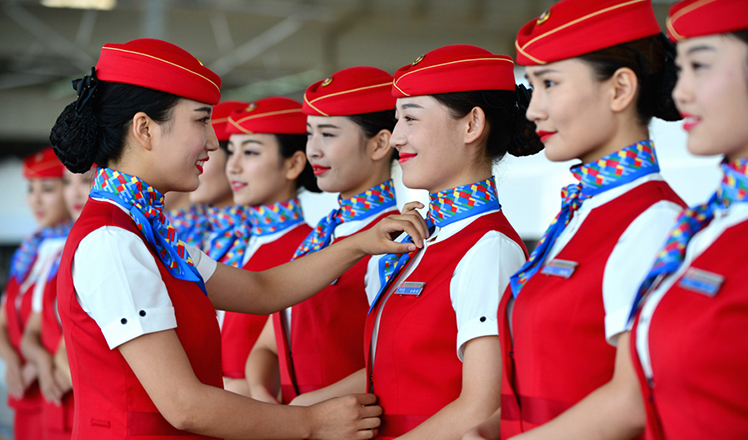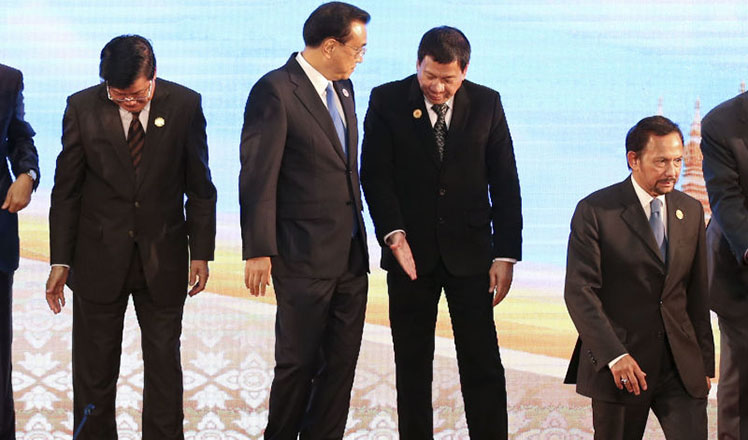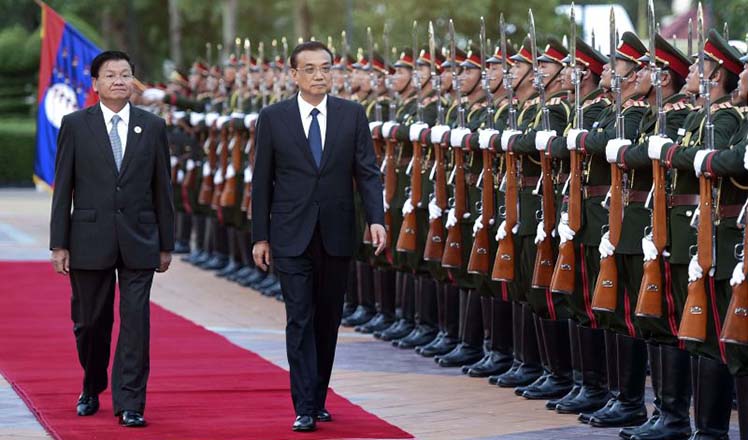Strategy against terrorism needs to be reconsidered
Updated: 2016-09-12 07:54
(China Daily)
|
||||||||
 |
|
Children peer into the south reflecting pool at the National September 11 Memorial and Museum in Manhattan, New York, US, September 1, 2016. [Photo/Agencies] |
Sunday was not just the day for remembering those who lost their lives in the terrorist attacks on the United States on Sept 11, 2001, it also brought into focus how much more needs to be done in the war against terror.
The 9/11 attacks were a watershed in the history of the United States and the world at large, as it is no exaggeration to say that they heralded the era of cross-border and pan-national terrorism and the worldwide fight against terrorists.
However, the efforts of the international community to fight terrorism and the money spent in this regard since then have not paid off. Statistics show that the number of terrorist attacks has risen considerably since the 9/11 attacks, especially after the war the United States launched against Iraq in 2003. What is even more worrying and terrifying is the fact that the majority of terrorist attacks are targeted at ordinary people with the aim of provoking fear and division.
The US, and the rest of the world, might have had reason to celebrate when Osama bin Laden was killed by US special forces in 2011, as it weakened al-Qaida, the terrorist organization responsible for the 9/11 attacks and a lot of other attacks elsewhere.
Yet, the Islamic State group has risen in its place, and it has proved to be even more ruthless. And the terrorist attacks launched by suicidal individuals in European countries such as France and other parts of the world point to the rise of extremism or radicalism which is not necessarily connected to terrorist organizations such as the IS or al-Qaida, despite their claims to the contrary.
Never has the world created so much wealth, yet never has the world's wealth been concentrated in the hands of so few, and in such an extreme manner. Despite the fact that living standards of the majority of people have improved considerably over the past several decades, the polarization in the distribution of wealth has resulted in an increasing dissatisfaction, which is possibly one of the root causes of the rise of extremism.
Regional tensions and differences have also diverted the attention of the major countries from the war against terrorism and extremism and left a lot of room for extremist forces to increase their influence.
To honor the memory of those who died on Sept 11, 2001, and those around the world who have died in terrorist attacks since, the international community needs to rethink its strategy so it can more effectively fight terrorism and root out the causes of extremism worldwide.
- Three women planning 'imminent' attacks arrested in France: minister
- China, Britain vow to deepen military exchanges, mutual trust
- British parliament to debate second Brexit referendum petition
- Chinese women find their way through the glass ceiling
- Rousseff leaves presidential residence in salutation
- Thousands of Chinese rally in Paris to call for 'security for all'

 15th anniversary of 9/11 attacks marked
15th anniversary of 9/11 attacks marked
 Yao Ming and Class of 2016 receive Hall of Fame jackets
Yao Ming and Class of 2016 receive Hall of Fame jackets
 Bullet train attendants strut new look in Xi'an
Bullet train attendants strut new look in Xi'an
 Ten photos from around China: Sept 2 - 8
Ten photos from around China: Sept 2 - 8
 Turning mud into work of art
Turning mud into work of art
 Unforgettable moments of Premier Li at ASEAN meeting
Unforgettable moments of Premier Li at ASEAN meeting
 Sights and sounds of Premier Li's visit to Laos
Sights and sounds of Premier Li's visit to Laos
 Six policy signals China sent at G20 Summit
Six policy signals China sent at G20 Summit
Most Viewed
Editor's Picks

|

|

|

|

|

|
Today's Top News
Trump outlines anti-terror plan, proposing extreme vetting for immigrants
Phelps puts spotlight on cupping
US launches airstrikes against IS targets in Libya's Sirte
Ministry slams US-Korean THAAD deployment
Two police officers shot at protest in Dallas
Abe's blame game reveals his policies failing to get results
Ending wildlife trafficking must be policy priority in Asia
Effects of supply-side reform take time to be seen
US Weekly

|

|








